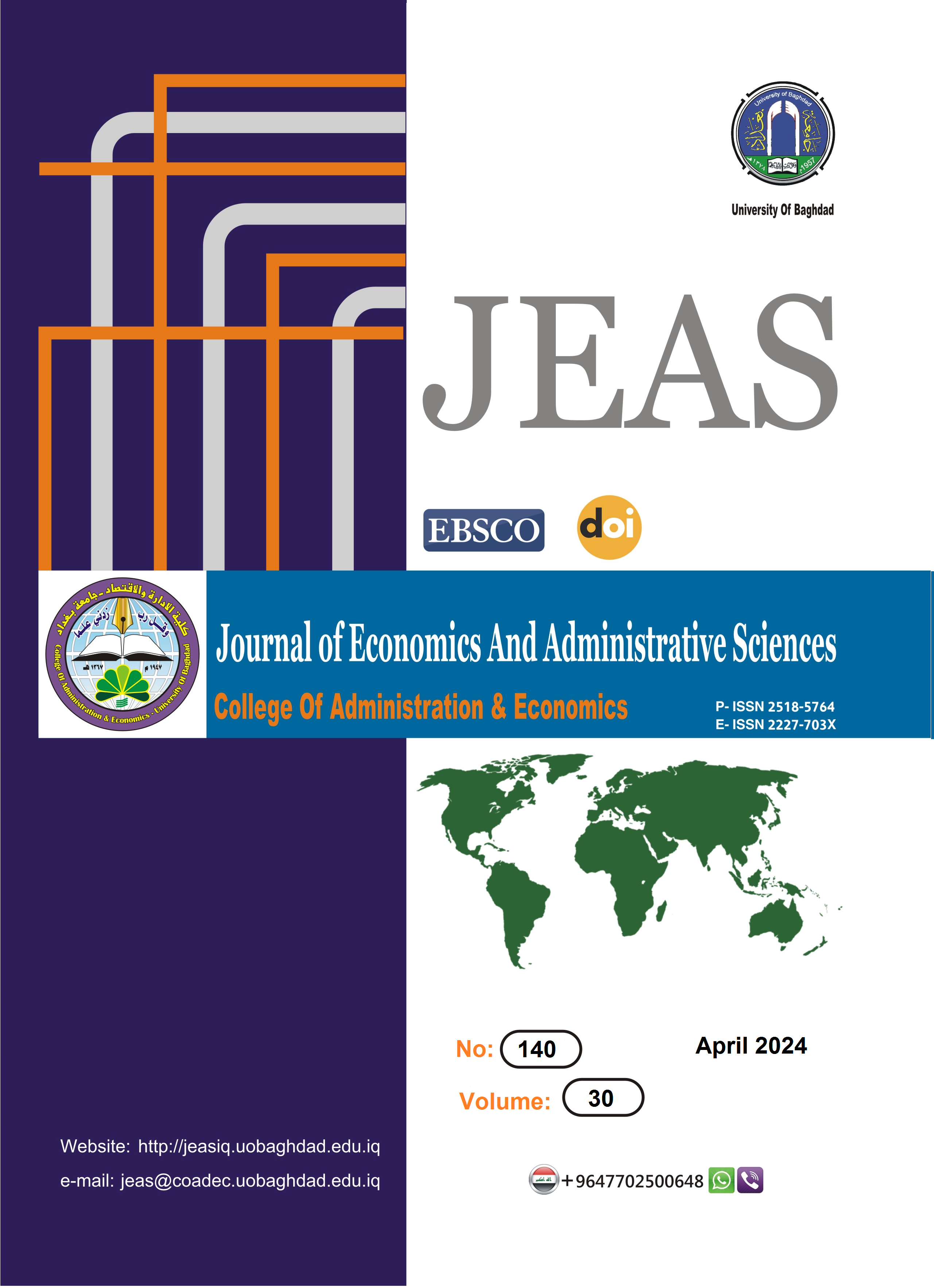The Effect of Dynamic Marketing Capabilities on Organizational Reputation: An Analytical Research in General Company Diyala
DOI:
https://doi.org/10.33095/0fw8ah03Keywords:
Dynamic marketing capabilities, organizational reputation.Abstract
The current research aims to determine the extent of the impact of dynamic marketing capabilities in its dimensions (product development, market knowledge, customer relationship management) as an explanatory variable on organizational reputation in its dimensions (social responsibility, service quality, creativity) as a response variable to arrive at appropriate mechanisms that enable General Diyala Company By exploiting its dynamic marketing capabilities to achieve its organizational reputation. For this purpose, several hypotheses formulated, the most important of which is finding the influence relationship. To test the research hypotheses, the researcher chose Diyala Company, and relied on the descriptive-analytical method. Data collected from various levels of management and departments. The data included managers, agents, marketing, media, communications, and relations departments. The sample number was (115) individuals, and the questionnaire was relied upon to collect data, in addition to the researcher's use of personal interviews with the company's general manager and department managers to enhance the questionnaire's results. The researcher relied on SPSS, Amos, and Excel programs to process and analyze the questionnaires. He also used descriptive statistics methods (arithmetic mean, standard deviation, coefficient of variation, coefficient of determination, R2, relative importance), and the most prominent conclusions were the interest in creative people and the adoption of rules and instructions that suit their needs and skills, which reflects a strategic vision to support and encourage creativity within the company.
Research paper.
Downloads
Published
Issue
Section
License
Copyright (c) 2024 Journal of Economics and Administrative Sciences

This work is licensed under a Creative Commons Attribution-NonCommercial-NoDerivatives 4.0 International License.
Articles submitted to the journal should not have been published before in their current or substantially similar form or be under consideration for publication with another journal. Please see JEAS originality guidelines for details. Use this in conjunction with the points below about references, before submission i.e. always attribute clearly using either indented text or quote marks as well as making use of the preferred Harvard style of formatting. Authors submitting articles for publication warrant that the work is not an infringement of any existing copyright and will indemnify the publisher against any breach of such warranty. For ease of dissemination and to ensure proper policing of use, papers and contributions become the legal copyright of the publisher unless otherwise agreed.
The editor may make use of Turtitin software for checking the originality of submissions received.

























